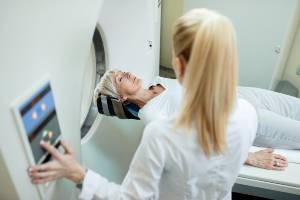Blog
How Mesothelioma is Different for Men Compared to Women
Posted on behalf of Peter T. Nicholl in Mesothelioma & Asbestos Published on April 7, 2021 and updated on March 15, 2022. While those who worked with or near asbestos-containing products have the highest risk of developing mesothelioma, workers’ friends and loved ones can suffer secondary exposure. That is often how women breathe in asbestos fibers and eventually develop this fatal disease.
While those who worked with or near asbestos-containing products have the highest risk of developing mesothelioma, workers’ friends and loved ones can suffer secondary exposure. That is often how women breathe in asbestos fibers and eventually develop this fatal disease.
Even though women and men can contract the same disease, it may affect women and men a little differently. For example, did you know women diagnosed with mesothelioma often have a longer survival rate than men?
There are many factors to consider when you look at how mesothelioma affects men and women. Learn more about this issue below.
If you have questions after receiving a mesothelioma diagnosis, call our Virginia mesothelioma lawyers for a free consultation. We have helped many mesothelioma victims recover compensation for the damages caused by this disease.
Differing Survival Rates
Women who are diagnosed with mesothelioma may survive longer than men diagnosed with this disease. The National Institutes of Health has researched this issue and found men have a five-year survival rate of 4.5 percent, compared to 13.4 percent for women.
According to research collected by the Surveillance, Epidemiology and End Results (SEER) Program, women often survive longer than men. At one year, the survival rate for women is 45.4 percent compared to 37.6 percent for men. The survival rate declines significantly after that, but women still have a higher survival rate: 29.3 percent in year two for women compared to 17.4 percent for men.
Why Might Women Survive Longer Than Men?
There could be various factors at work that may cause women to live longer than men after being diagnosed with mesothelioma.
For example, women tend to be healthier than men. They usually go to the doctor more than men do, and they often seek help sooner than men. This may result in women being diagnosed sooner than men. As with other types of cancer, early diagnosis often results in a better survival rate.
Women often have better cardiovascular health than men, which can be important after a cancer diagnosis. If you have better cardiovascular health, you may be able to handle aggressive surgery. This could give doctors more options for slowing the spread of the cancer.
It is also possible women who are diagnosed with mesothelioma were exposed to less asbestos than men. They often breathe in asbestos fibers via secondhand exposure.
Research has shown differing survival rates may be due to genetic mutations in some women. Some gene mutations allow people to respond better to treatment. While there is no cure for mesothelioma, effective treatment could slow the spread of the disease, prolonging the victim’s life.
Another factor in differing survival rates for men and women is the type of mesothelioma women are often diagnosed with. On average, women are more likely to be diagnosed with peritoneal mesothelioma than men. This form of mesothelioma has a higher survival rate compared to pleural mesothelioma.
Is Misdiagnosis a Greater Risk for Women?
Since women do not often contract mesothelioma, symptoms may be misdiagnosed as something else (asthma, flu, problems with the menstrual cycle, etc.). Doctors may not consider this as a diagnosis, particularly if it is not a disease they diagnose often.
Doctors often do not consider mesothelioma because it typically affects men who worked in high-risk professions, like shipbuilding. It is often difficult to determine how a woman was exposed to asbestos because it is often through secondhand exposure.
It is important to seek a second opinion if you develop symptoms common among mesothelioma patients. This disease is often misdiagnosed in men and women.
Contact Peter T. Nicholl Law Offices for Legal Assistance
There are many benefits to working with a licensed attorney as you pursue compensation for medical expenses and other damages.
The attorneys at our firm have proven experience with mesothelioma cases. We have recovered compensation for many victims, helping them to pay for medical treatment and helping to secure their family’s future.
There are no upfront fees for our services, and we are not paid unless you get paid at the end of the legal process, either through a settlement or courtroom verdict.
We are here to answer your legal questions. Call 410-907-3957.

